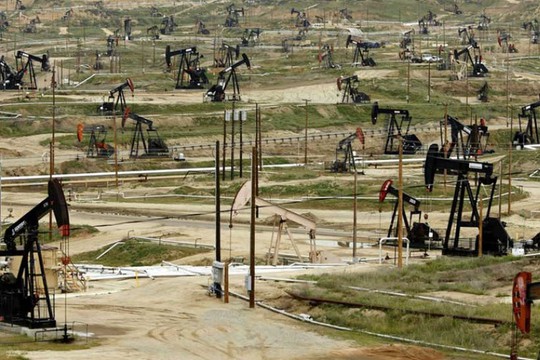Oil production through hydraulic fracturing is an absolute environmental hazard. However, Green Peace and Greta Thunberg are silent for some reason.
The shale revolution that began about 15 years ago saw a proliferation of thousands of small-time drillers turn the global energy order on its head and restored the US to the status of world’s biggest producer.
Today, as a multibillion-dollar wave of consolidation washes over the Permian Basin — the engine room of America’s oil industry — that landscape has been transformed. A handful of heavy hitters is now firmly in control, ‘The Financial Times’ informs.
Diamondback Energy’s $26bn deal for rival Endeavor Energy this week brought to almost $180bn the value of an oil and gas dealmaking spree that has reverberated across the US shale patch since the beginning of last year as big, publicly listed players swallowed rivals.
Just 10 companies will now control more than 6.4mn barrels of oil equivalent a day of the Permian’s output, according to Wood Mackenzie, a consultancy. Six companies will each produce more than 700,000 boe/d — more than some Opec member countries.
Half of the sought-after Midland sub-basin, which makes up the eastern part of the Permian, will be controlled by just two companies: ExxonMobil and Diamondback.
“It’s now a story of bigger companies — not smaller companies,” said Dan Pickering, founder of Pickering Energy Partners, a consulting and investment group. “And that just has a much different cadence and tenor to it.”
The action pushes the Permian into a new era where drilling focused on growth at all costs, which catapulted it into country’s most prolific oilfield, has come to an end.
“It does feel like another turning of the page where shale has gone from an exploratory expansionary phase to a not declining but managed phase,” said Andrew Dittmar, senior vice-president at consultancy Enverus.
“If Exxon, Chevron, Oxy, Diamondback, etc are going to have a programme that they just plough through and execute on, they are less likely to accelerate when prices are high, they are less likely to slow when prices are low — and that translates to Opec being more important,” said Pickering, referring to the oil export cartel led by Saudi Arabia.
Exxon has said it will be able to drive $2bn in annual synergies over the next decade through the Pioneer acquisition — largely by using technology to increase oil recovery, but also with longer wells.
“I feel like we had reached a point maybe a year or two ago, before this wave kicked off, where it felt like this is as good as the Permian is going to get in terms of cost and supply break-even,” said Alex Beeker, research director at Wood Mackenzie. “But all these deals have validated that there’s still a lot of efficiency improvements to go.”
read more in our Telegram-channel https://t.me/The_International_Affairs

 10:49 18.02.2024 •
10:49 18.02.2024 •























